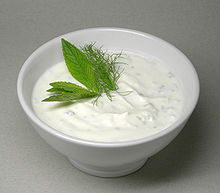 With the advent of the hygiene hypothesis, probiotics have provided an avenue of hope in curbing the allergic epidemic. The initial enthusiasm has been tempered by the complexities of this approach.
With the advent of the hygiene hypothesis, probiotics have provided an avenue of hope in curbing the allergic epidemic. The initial enthusiasm has been tempered by the complexities of this approach.Definitions of probiotics, prebiotics, and synbiotics
Probiotic: "A preparation of or a product containing viable, defined microorganisms in sufficient numbers, which alter the microflora (by implantation or colonization) in a compartment of the host and by that exert beneficial health effects in this host."
Prebiotic: "a non-digestible food ingredient that beneficially affects the host by selectively stimulating the growth and/or activity of one or a limited number of bacteria in the colon." This definition more or less overlaps with the definition of dietary fiber, with the exception of its selectivity for certain species.
Synbiotic: a product contains both probiotics and prebiotics.
Probiotics have shown limited promise in the prevention of allergic disease rather than in the treatment of established disease. These effects have been limited to the prevention of early childhood conditions such as eczema.
At this stage, the effects of prebiotics, synbiotics and postbiotics are even less clear.
Microbiota modulate immune development and can prevent the allergic phenotype but the optimal way of achieving this is unclear. Supplementation with a single probiotic strain may be oversimplistic.
Given the current level of evidence, it is not appropriate to recommend prebiotics/probiotics/synbiotics or postbiotics as a part of standard therapy or for the prevention of any allergic conditions.
This 2012 study found beneficial effects: Protective effect of Lactobacillus probiotic against eczema in infants persists up to age 4, including for rhinitis.
References:
Practical prebiotics, probiotics and synbiotics for allergists: how useful are they? Johannsen H, Prescott SL. Clin Exp Allergy. 2009 Dec;39(12):1801-14.
Probiotics, prebiotics, and synbiotics--approaching a definition. Schrezenmeir J, de Vrese M. Am J Clin Nutr. 2001 Feb;73(2 Suppl):361S-364S.
Synbiotics prevent asthma-like symptoms in infants with atopic dermatitis http://goo.gl/izEI
Weak efficacy of probiotic Lactobacillus GG for prevention of allergic sensitization and asthma in infants at risk http://goo.gl/jYxPNew evidence relates prebiotics to reduced occurrence of AD. JACI Journal Club http://goo.gl/qUyE
Probiotics given to pregnant women reduced incidence of atopic dermatitis, but had no effect on atopic sensitization. http://goo.gl/xcQiProbiotics and Prebiotics in Pediatrics http://goo.gl/daCiz
Probiotics may down modulate key parameters of allergic rhinitis. Clin Exp Allergy 2011.
"The Office" misinterprets the hygiene hypothesis (video) http://goo.gl/9YhwL
Probiotics and Prebiotics in Pediatrics. PEDIATRICS Vol. 126 No. 6 December 2010, pp. 1217-1231 (doi:10.1542/peds.2010-2548).
Probiotics do not have an established role in the prevention or treatment of allergy http://buff.ly/YBewzd
Image source: Cacık, a Turkish cold appetiser yoghurt variety, Wikipedia, Creative Commons Attribution ShareAlike 3.0 License.